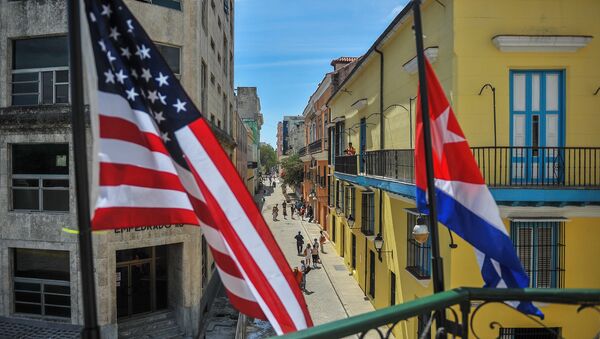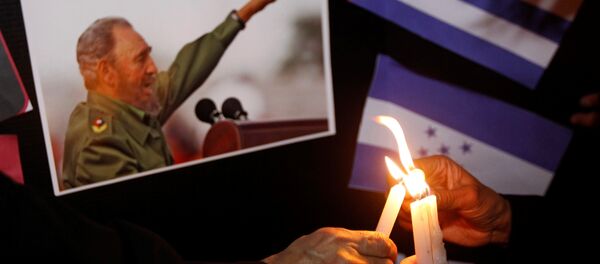MOSCOW (Sputnik) — Castro died on Friday, at the age of 90, as announced by his brother, incumbent Cuban President Raul Castro, on state television on Saturday.
Castro's relationship with the United States remained strained following the success of the 1959 revolution and Castro's nationalization of Cuba. In 1960, the United States announced a complete economic blockade of Cuba due to differences between Washington and the Soviet-backed communist government in Havana. Only in December 2014, US President Barack Obama announced the United States would normalize relations with Cuba.
While the United States and Cuba reopened embassies in their respective capitals in July 2015, the congressionally-mandated US trade embargo continues to remain in effect.
Cuba still needs to meet a number of requirements established by the Helms-Burton Law for the embargo to be lifted, including "a transition government" which does not include Fidel or Raul Castro, Duany said.
"But other preconditions are the legalization of all political activity (including multiple parties), the release of all political prisoners, free and fair elections, and respect for human rights. Until Cuba meets such criteria, it’s difficult to imagine that the majority of Congress — dominated by the Republican Party — will vote to eliminate the embargo," he added.
Erika de la Garza, a program director at Rice University, however, noted that, "from a purely economic and US-centric standpoint the US embargo or blockade towards Cuba hurts American businesses and consumers. As a businessman Trump understands that and despite his rhetoric of repealing all of Obama’s executive actions, US-Cuba relations should continue to strengthen under a Trump administration."
According to Mark Jones, fellow in political science at Rice University, relations between the two countries are unlikely to change in the "short term," with Raul Castro and the Cuban Communist Party remaining power.
"Castro's passing alone is unlikely to noticeably affect US-Cuba relations in the short term, but his departure does remove a significant impediment to better relations in the medium term," Jones said.
Castro's death also has symbolic implications. As Jones noted, for many Cuban Americans, including those in Congress, Castro was "an actor with whom many leading Cuban Americans could not even contemplate rapprochement." The removal of the controversial figure, Jones and de la Garza agree, will likely make negotiations and cooperation between the two countries more palatable to the US government.





